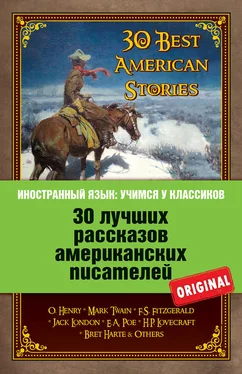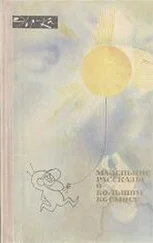It struck him as curious that he could run at all on feet so frozen that he could not feel them when they struck the earth and took the weight of his body. He seemed to himself to skim along above the surface, and to have no connection with the earth. Somewhere he had once seen a winged Mercury [127] Mercury – the closest to the Sun planet of the solar system.
, and he wondered if Mercury felt as he felt when skimming over the earth.
His theory of running until he reached camp and the boys had one flaw in it: he lacked the endurance. Several times he stumbled, and finally he tottered, crumpled up, and fell. When he tried to rise, he failed. He must sit and rest, he decided, and next time he would merely walk and keep on going. As he sat and regained his breath, he noted that he was feeling quite warm and comfortable. He was not shivering, and it even seemed that a warm glow had come to his chest and trunk. And yet, when he touched his nose or cheeks, there was no sensation. Running would not thaw them out. Nor would it thaw out his hands and feet. Then the thought came to him that the frozen portions of his body must be extending. He tried to keep this thought down, to forget it, to think of something else; he was aware of the panicky feeling that it caused, and he was afraid of the panic. But the thought asserted itself, and persisted, until it produced a vision of his body totally frozen. This was too much, and he made another wild run along the trail. Once he slowed down to a walk, but the thought of the freezing extending itself made him run again.
And all the time the dog ran with him, at his heels. When he fell down a second time, it curled its tail over its forefeet and sat in front of him, facing him, curiously eager and intent. The warmth and security of the animal angered him, and he cursed it till it flattened down its ears appealingly. This time the shivering came more quickly upon the man. He was losing in his battle with the frost. It was creeping into his body from all sides. The thought of it drove him on, but he ran no more than a hundred feet, when he staggered and pitched headlong. It was his last panic. When he had recovered his breath and control, he sat up and entertained in his mind the conception of meeting death with dignity. However, the conception did not come to him in such terms. His idea of it was that he had been making a fool of himself, running around like a chicken with its head cut off – such was the simile that occurred to him. Well, he was bound to freeze anyway, and he might as well take it decently. With this new-found peace of mind came the first glimmerings of drowsiness. A good idea, he thought, to sleep off to death. It was like taking an anaesthetic [128] anaesthetic – medicine that relieves pain or produces general loss of sensation.
. Freezing was not so bad as people thought. There were lots worse ways to die.
He pictured the boys finding his body next day. Suddenly he found himself with them, coming along the trail and looking for himself. And, still with them, he came around a turn in the trail and found himself lying in the snow. He did not belong with himself any more, for even then he was out of himself, standing with the boys and looking at himself in the snow. It certainly was cold, was his thought. When he got back to the States he could tell the folks what real cold was. He drifted on from this to a vision of the old-timer on Sulphur Creek. He could see him quite clearly, warm and comfortable, and smoking a pipe.
‘You were right, old hoss; you were right,’ the man mumbled to the old-timer of Sulphur Creek.
Then the man drowsed off into what seemed to him the most comfortable and satisfying sleep he had ever known. The dog sat facing him and waiting. The brief day drew to a close in a long, slow twilight. There were no signs of a fire to be made, and, besides, never in the dog’s experience had it known a man to sit like that in the snow and make no fire. As the twilight drew on, its eager yearning for the fire mastered it, and with a great lifting and shifting of forefeet, it whined softly, then flattened its ears down in anticipation of being chidden by the man. But the man remained silent. Later, the dog whined loudly. And still later it crept close to the man and caught the scent of death. This made the animal bristle and back away. A little longer it delayed, howling under the stars that leaped and danced and shone brightly in the cold sky. Then it turned and trotted up the trail in the direction of the camp it knew, where were the other food-providers and fire-providers.
Howard Phillips Lovecraft
Dagon [129] Dagon – in the Middle East, the Semitic god of fertility, the legendary inventor of the plow.
I am writing this under an appreciable mental strain, since by tonight I shall be no more. Penniless, and at the end of my supply of the drug which alone makes life endurable, I can bear the torture no longer; and shall cast myself from this garret window into the squalid street below. Do not think from my slavery to morphine that I am a weakling or a degenerate. When you have read these hastily scrawled pages you may guess, though never fully realise, why it is that I must have forgetfulness or death.
It was in one of the most open and least frequented parts of the broad Pacific that the packet of which I was supercargo fell a victim to the German sea-raider. The Great War [130] the Great War – World War I of 1914–1918.
was then at its very beginning, and the ocean forces of the Hun [131] the Hun(s) – primitive nomadic people who invaded Europe in the 4th century and built an enormous empire.
had not completely sunk to their later degradation; so that our vessel was made legitimate prize, whilst we of her crew were treated with all the fairness and consideration due us as naval prisoners. So liberal, indeed, was the discipline of our captors that five days after we were taken I managed to escape alone in a small boat with water and provisions for a good length of time.
When I finally found myself adrift and free, I had but little idea of my surroundings. Never a competent navigator, I could only guess vaguely by the sun and stars that I was somewhat south of the equator. Of the longitude I knew nothing, and no island or coast-line was in sight. The weather kept fair, and for uncounted days I drifted aimlessly beneath the scorching sun; waiting either for some passing ship, or to be cast on the shores of some habitable land. But neither ship nor land appeared, and I began to despair in my solitude upon the heaving vastnesses of unbroken blue.
The change happened whilst I slept. Its details I shall never know; for my slumber, though troubled and dream-infested, was continuous. When at last I awaked, it was to discover myself half sucked into a slimy expanse of hellish black mire which extended about me in monotonous undulations as far as I could see, and in which my boat lay grounded some distance away.
Though one might well imagine that my first sensation would be of wonder at so prodigious and unexpected a transformation of scenery, I was in reality more horrified than astonished; for there was in the air and in the rotting soil a sinister quality which chilled me to the very core. The region was putrid with the carcasses of decaying fish, and of other less describable things which I saw protruding from the nasty mud of the unending plain. Perhaps I should not hope to convey in mere words the unutterable hideousness that can dwell in absolute silence and barren immensity. There was nothing within hearing, and nothing in sight save a vast reach of black slime; yet the very completeness of the stillness and homogeneity of the landscape oppressed me with a nauseating fear.
Читать дальше












